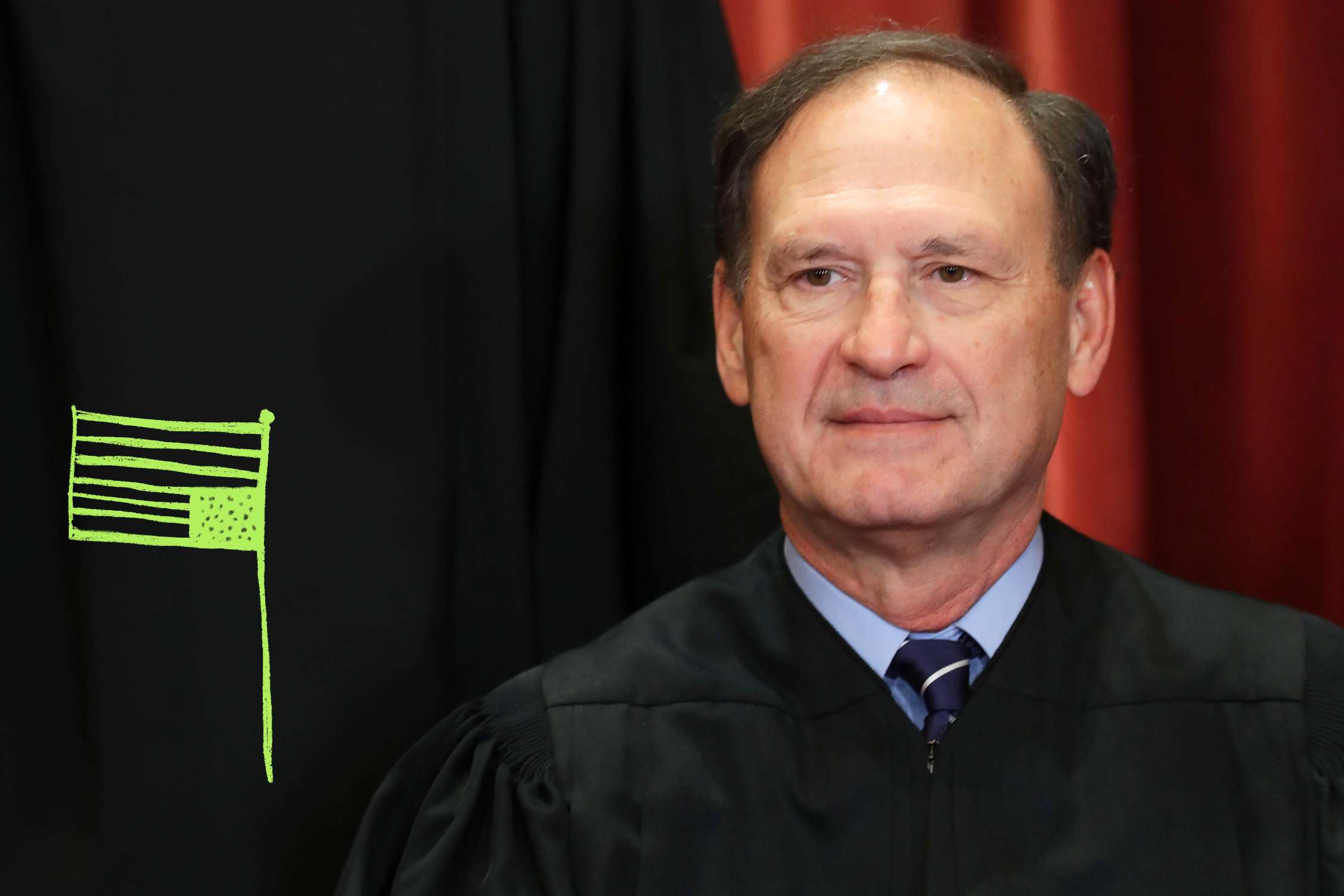
Too much deference undermines America’s highest court.
Three days before Joe Biden took office, an upside-down American flag was photographed flying above the Virginia home of US Supreme Court Justice Samuel Alito and his wife, Martha-Ann. Last summer, a white flag displaying a green pine tree was flown above their holiday home on the New Jersey coast.
So what? Context matters. Since Donald Trump lost the 2020 presidential election, these flags have become symbols of solidarity for people who insist he actually won it, and of support for those who stormed the Capitol two months later.
More context. The January 6 insurrection is the subject of three cases before the Supreme Court, each of them far more consequential than the hush money trial in which Trump was convicted on all counts five days ago (see cases 1, 2 and 3 below).
Justice in the dock. Trump’s lawyers say he didn’t get a fair trial in Manhattan because the jury pool there was stacked against him. His critics say he’ll never get what he deserves from the Supreme Court because its judges are stacked in his favour.
More than that, they say the story of Alito’s flags represents
- the politicisation of America’s highest court
- the undue deference with which the press has covered it; and
- the defiance of justices found to be flouting its rules.
As a member of the Supreme Court, Alito is ostensibly a non-partisan actor constrained by an ethics code which explicitly advises him to not engage in any political activity. He will soon be one of nine justices hearing a case about whether Trump, as a former president, is immune from federal prosecution (case 1). This matters because it will determine whether the court hears the main federal case accusing him of trying to overturn the 2020 election, brought by special prosecutor Jack Smith (case 2).
- In addition, Trump faces a sprawling racketeering case in Georgia on related charges and a criminal indictment in Florida for allegedly mishandling classified documents.
- In addition, Alito will soon join the rest of the Supreme Court in deciding whether any of the January 6 rioters can be tried for obstructing the certification of the 2020 result (case 3).
Last week, in response to demands to recuse himself from cases related to the January 6 attack because of the flag story, Alito refused.
Alito’s explanation. “My wife is very fond of flying flags,” Alito wrote, “I am not.”
Defiance. Their ethics code notwithstanding, Supreme Court justices are left to decide whether to recuse themselves because of conflicts or the appearance of conflicts of interest. They often do, but Alito asserted there was no reason to doubt his impartiality.
Deference. The Washington Post knew about the Virginia flag three years ago but didn’t run the story because of what’s been called an overly cautious belief that the justices should be seen as “a class apart – jurists covered for their ideas, rather than their personalities or interests”. The New York Times published the story last week.
Politicisation. Alito claims to have known nothing about the flags’ significance, but it’s hard to separate him from them entirely. The case file pointing to political bias in the court meant to represent the highest ideals of American justice was already thick:
- Alito himself has claimed to see such bias in the liberal majority that ruled on Roe v Wade in 1973.
- The world saw it in the 2000 Florida recount that handed George W Bush the presidency by a 5-4 conservative majority.
- In the Dobbs decision which overturned Roe two years ago, Alito wrote the majority opinion for six justices appointed by Republican presidents with precisely this reversal in mind.
Amanda Frost, a law professor at the University of Virginia who specialises in judicial ethics, calls flying the upside down flag the “the equivalent of putting a ‘Stop the Steal’ sign in your yard, which is a problem if you’re deciding election-related cases.”
What’s more… It’s an even bigger problem when the election-related cases look fated to be postponed until after the election.












